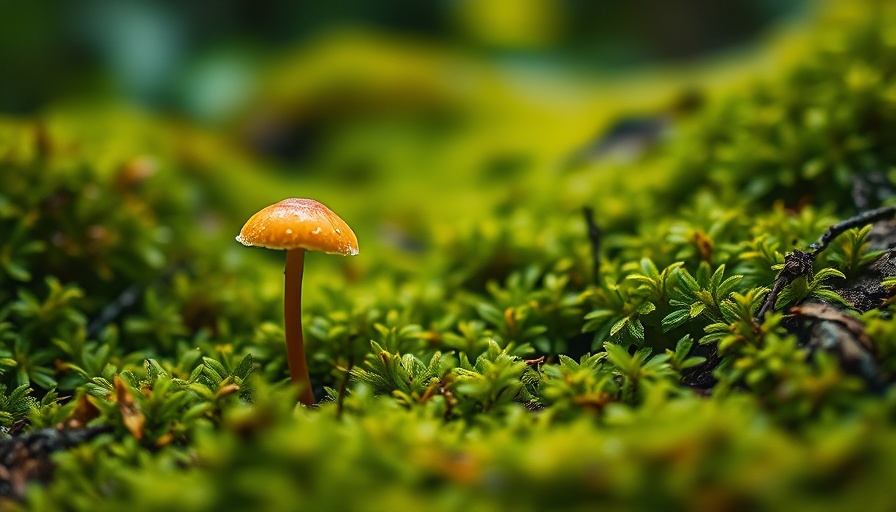
An Exciting Proposal: Recognizing the Kingdom of Fungi
At the forefront of a remarkable environmental movement, the governments of Chile and the UK presented a proposal to the UN during COP16 to classify fungi distinctly within conservation frameworks, coining the term “funga.” This proposal comes from the Flora Fauna Funga Initiative, aimed at acknowledging fungi's critical role in the ecosystem alongside traditional flora and fauna.
Fungi: Earth's Hidden World-Changers
Fungi are often overlooked, but their importance is colossal. Although historically grouped with plants, recent understanding reveals they are a separate kingdom entirely, one that shares a surprising kinship with humans. Researchers highlight that fungi diverged from our common ancestry about 1.5 billion years ago. Understanding this ancient relationship emphasizes the significant ecological roles they play.
Understanding Fungi’s Diversity
The fungi kingdom comprises an incredible range of organisms, including mushrooms, molds, and yeasts, which are classified into three main categories: saprobic, parasitic, and mutualistic. Saprobes help decompose organic matter, parasitic fungi inhabit living hosts, and mutualistic fungi form beneficial relationships with plants, enhancing nutrient absorption and promoting healthy ecosystems.
Fungi as Life-Givers: Beyond Pathogens
Much of Western science has primarily highlighted fungi's potential to cause disease, often overshadowing their life-sustaining virtues. As Guiliani Furci and Merlin Sheldrake noted, ignoring fungi means crafting an incomplete narrative about the living world. Fungi's role in soil health is vital; they form mycelial networks that not only support plant growth by facilitating nutrient exchange but also sustain entire ecosystems by nurturing the microorganisms in the soil.
Cultural and Culinary Connections to Fungi
The culinary world has embraced fungi in various cultures, recognizing their unique flavors and health benefits. From the versatile mushroom to the probiotic-rich kimchi made with beneficial yeast, fungi enrich our diets and contribute to health promotion. Individuals in Castle Rock may find local restaurants showcasing mushrooms in their dishes, emphasizing sustainable sourcing and fostering a connection between nature and dining experiences.
The Future Landscape: Fungi in Conservation and Sustainability
With growing evidence of fungi's ecological importance, discussions about conservation are evolving. Protecting fungi could mean bolstering biodiversity and enhancing the resilience of ecosystems facing climate change. By acknowledging the significance of fungi, we open the door to innovative sustainable practices—like using mycelium as a biodegradable alternative to plastic—ensuring a healthier future for generations to come.
How You Can Embrace Fungi in Your Life
For residents of Castle Rock eager to embrace healthier living, incorporating more fungi into your diet is a start. Here are a few practical tips:
- Explore Local Produce: Visit farmer's markets to discover fresh, local mushrooms.
- Cooking Adventures: Experiment with different types of fungi in your meals. From stir-fries to soups and salads, mushrooms can add unique flavors and nutrition.
- Education and Awareness: Engage in community workshops or classes that focus on mycology, contributing to a broader understanding of fungi’s roles in our lives.
Conclusion: The Journey with Fungi Begins
As we awaken to the wonders of fungi, the science surrounding them grows captivating—this will transform conservation policies and our health practices. Whether you're drawn to their role in sustainable living or their culinary possibilities, embracing fungi enriches our lives. Take a moment to appreciate this hidden kingdom, and consider how you might incorporate more fungal friends into your life for a healthier and more connected existence.
 Add Row
Add Row  Add
Add 




Write A Comment